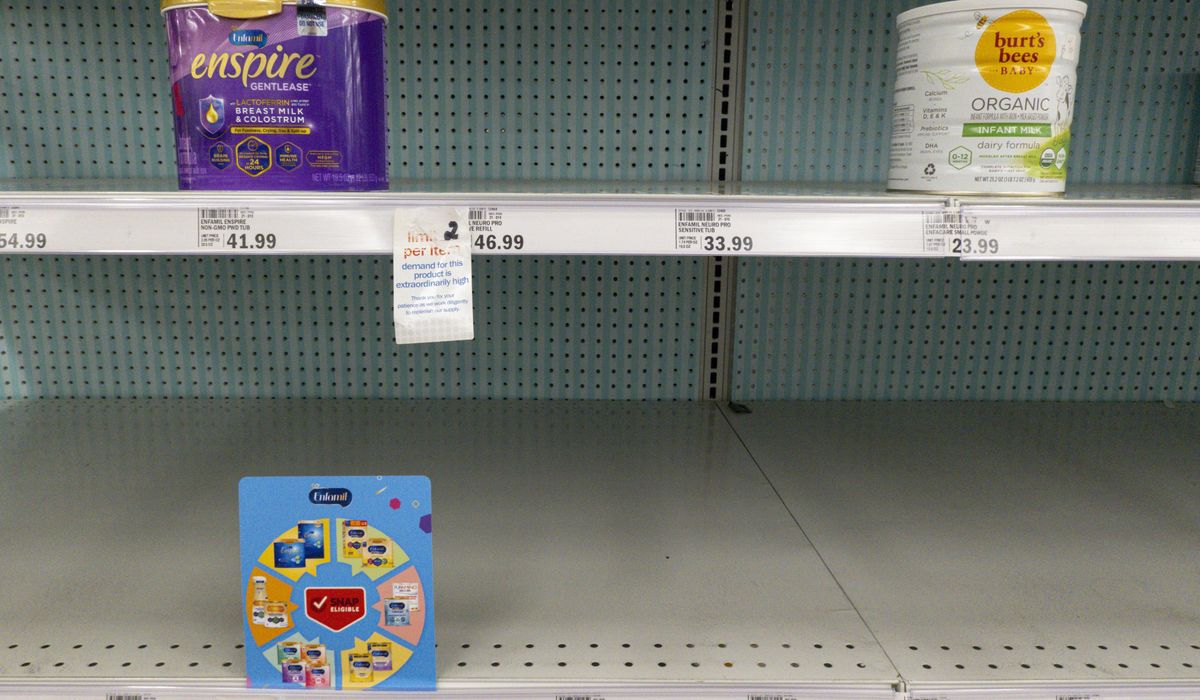Deadly germ behind infant formula shortage joins CDC watchlist of bad bugs

U.S. health officials will start formally tracking infections caused by the rare but potentially deadly germ that sickened babies and triggered a nationwide shortage of infant formula last year.
A group that advises the Centers for Disease Control and Prevention agreed Thursday to add infections caused by cronobacter to the list of serious conditions reported to the agency. There are about 120 infections and diseases on the national watchlist.
States will be asked, but not required, to notify the CDC about cronobacter infections, although they usually comply. Such infections are required to be reported now in only two states, Minnesota and Michigan. The change will take effect next year, though states may begin reporting earlier.
The action by the Council of State and Territorial Epidemiologists, a nonprofit group, caps months of demands from experts and food safety advocates who called for better surveillance of the deadly infections that typically strike the most vulnerable babies. The move establishes standard criteria for identifying and counting probable and confirmed cronobacter cases and recommends that states require them to be reported.
Cronobacter is a type of bacteria found widely in the environment. When the bug gets into a food such as powdered formula, it can cause life-threatening bloodstream infections and meningitis in very young or ill infants.
Dr. Julia Haston, who has studied cronobacter infections at the CDC, said earlier this year that the agency has typically received reports of two to four of the invasive infections a year, rather than the 18 that are estimated to actually occur.
“Because we don’t routinely perform surveillance, we don’t know the true incidence of infection or the number of deaths per year,” she said.
Though the infections are rare, up to 40% of babies who fall ill will die, Haston added.
An outbreak of cronobacter infections that started in 2021 sickened four infants fed formula from Abbott Nutrition’s Sturgis, Michigan, plant. Two of the babies died. No direct link was found between the Abbott products and the infections, but FDA officials shuttered the plant after contamination and other problems were detected. Abbott recalled top brands of infant formula, triggering a massive nationwide shortage that lasted for months.
So far this year, one case of cronobacter infection in an infant has been reported to the CDC, an agency spokesman said. An investigation found the bacteria in an open can of powdered formula in the child’s home. Cronobacter was not found in an unopened can of formula. The location and brand of formula wasn’t disclosed.
Most parents don’t realize that powdered formula isn’t sterile or that they must be scrupulous about how they handle the product, the bottles – even the sinks and countertops where formula is prepared, said Mitzi Baum, chief executive of Stop Foodborne Illness, a nonprofit group that advocates for food safety.
In March, the CDC warned parents to sterilize equipment used for both bottle- and breastfeeding after a baby died from a cronobacter infection traced to a contaminated breast pump.
“It is abundantly clear that consumers do not know the risks associated with use of powdered formula,” Baum said.
—
The Associated Press Health and Science Department receives support from the Howard Hughes Medical Institute’s Science and Educational Media Group. The AP is solely responsible for all content.

